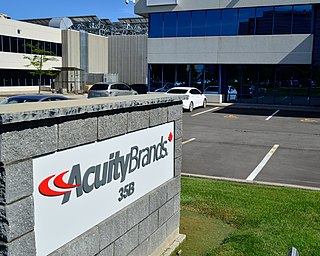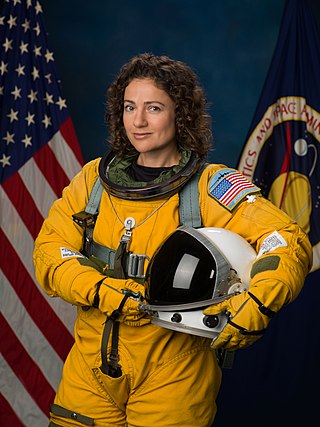Ronald W. Schafer is an American electrical engineer notable for his contributions to digital signal processing.

Anthony Michael Fadell is an American engineer, designer, entrepreneur, and investor. He was senior vice president of the iPod division at Apple Inc. and founder and former CEO of Nest Labs.
Samuel Clarke "Sandy" Pearlman was an American music producer, artist manager, music journalist and critic, professor, poet, songwriter, and record company executive. He was best known for founding, writing for, producing, or co-producing many LPs by Blue Öyster Cult, as well as producing notable albums by The Clash, The Dictators, Pavlov's Dog, and Dream Syndicate; he was also the founding Vice President of eMusic.com. He was the Schulich Distinguished Professor Chair at the Schulich School of Music at McGill University in Montreal, and from August 2014 held a Marshall McLuhan Centenary Fellowship at the Coach House Institute (CHI) of the University of Toronto Faculty of Information as part of the CHI's McLuhan Program in Culture and Technology.

The Producers Guild of America (PGA) is a 501(c)(6) trade association representing the interests television producers, film producers and emerging media producers in the United States. The PGA's membership includes over 8,400 members of the producing establishment worldwide.

Peter Chernin is an American film and television producer, businessman and investor. He is the chairman and CEO of The Chernin Group (TCG), which he founded in 2010. TCG manages, operates and invests in businesses in the media, entertainment, and technology sectors.
The Technology and Engineering Emmy Awards, or Technology and Engineering Emmys, are one of two sets of Emmy Awards that are presented for outstanding achievement in engineering development in the television industry. The Technology and Engineering Emmy Awards are presented by the National Academy of Television Arts and Sciences (NATAS), while the separate Primetime Engineering Emmy Awards are given by its sister organization the Academy of Television Arts & Sciences (ATAS).

Paul Matthew Hoffert, LLD, CM is a recording artist, performer, media music composer, author, academic, and corporate executive. He studied mathematics and physics at the University of Toronto. He later studied music composition with Gordon Delamont. In 1969, the 26-year-old Hoffert co-founded Lighthouse, a rock group that sold millions of records and earned three Juno Awards as one of Canada's leading pop bands. His film music earned him a San Francisco Film Festival and three SOCAN Film Composer of the Year awards and included films such as The Proud Rider (1971), The Groundstar Conspiracy (1972), Outrageous! (1977), High-Ballin' (1978), The Shape of Things to Come (1979), Wild Horse Hank (1979), Mr. Patman (1980), Deadly Companion (1981), Paradise (1982), Fanny Hill (1983), Bedroom Eyes (1984), and Mr. Nice Guy (1987).
The AeA was a nationwide non-profit trade association that represented all segments of the technology industry. It lobbied governments at the state, federal, and international levels; provided access to capital and business opportunities; and offered select business services and networking programs. AEA Councils, in Tech Centers nationwide, began forming in 1977, after the Board of Directors approved the nationwide expansion. Membership exploded to 3,000 from high tech centers from Boston to California.

Acuity Brands, Inc. is a lighting and building management firm headquartered in Atlanta, Georgia, with operations throughout North America and in Europe and Asia. As of 2024 the company has approximately 12,000 employees and recorded net sales of $3.84 billion for the fiscal year. In terms of market share, Acuity Brands is the largest lighting manufacturer in North America.
Sopogy short for Solar Power Technology was a solar thermal technology supplier founded in 2002 at the Honolulu, Hawaii-based clean technology incubator known as Energy Laboratories. The company began its research on concentrating solar thermal energy to produce solar steam and thermal heat for absorption chillers or industrial process heat. The company has also developed applications that incorporate its solar collectors to generate electricity and desalination. Sopogy's name origin comes from industry key words "So" from solar "po" from power and "gy" from energy and technology. The company has its OEM and IPP sales teams along with research and development located in Honolulu, and in 2006 expanded its manufacturing, C&I and oil and gas sales teams in its Silicon Valley facility. Pacific Business News and Greentech Media reported that the VC-funded micro-concentrator solar power firm was shutting down operations based on statements from its President David Fernandez, however Hitachi Power Systems acquired Sopogy in a private transaction in 2014.

Patrick Eugene Haggerty was an American engineer and businessman. He was a co-founder and former president and chairman of Texas Instruments, Incorporated (TI). Under his leadership, the company grew from a small Texas oil exploration company into a global leader in the semiconductor industry. During his tenure, TI invested in transistors when their commercial value was still much in question, created the first silicon transistor, the first commercial transistor radio, the first integrated circuit, and helped develop and produce the first single chip microprocessor.
The IEEE Eric E. Sumner Award is a Technical Field Award of the IEEE. It was established by the IEEE board of directors in 1995. It may be presented annually, to an individual or a team of not more than three people, for outstanding contributions to communications technology. It is named in honor of Eric E. Sumner, 1991 IEEE President.
Guggenheim Partners, LLC is a global investment and advisory financial services firm that engages in investment banking, asset management, capital markets services, and insurance services.

Bret Clifton Gilliam was an American pioneering technical diver. He was most famous as co-founder of the certification agency Technical Diving International along with Mitch Skaggs, and as the one time holder of the world record for deep diving on air. He is also one of diving's most popular writers. Gilliam is the author or coauthor of 72 books, over 1500 feature magazine articles, and over 100 magazine cover photos. In his diving career he has logged over 19,000 dives since 1959.
The L-Prize competition was designed to spur development of LED light replacements for 60W incandescent lamps and PAR38 halogen lamps as well as an ultra-efficient "21st Century Lamp". It was established by the United States Department of Energy (DOE) as directed by the Energy Independence and Security Act of 2007. The original competition, launched in 2008, focused on an LED replacement for the common 60-watt light bulb and this L-Prize was awarded in 2011. The PAR38 competition was launched but received no entries and was suspended in 2014. The 21st Century Lamp competition was never opened.

Wanda M. Austin is an American aerospace engineer. She is a former president and CEO of The Aerospace Corporation. She was both the first woman, and the first African-American, to hold this position. Austin also served as interim president for the University of Southern California, following the resignation of C. L. Max Nikias. She was both the first woman, and the first African-American, to hold this position.

Jessica Ulrika Meir is an American NASA astronaut, marine biologist, and physiologist. She was previously an assistant professor of anesthesia at Harvard Medical School, Massachusetts General Hospital, Boston, following postdoctoral research in comparative physiology at the University of British Columbia. She has studied the diving physiology and behavior of emperor penguins in Antarctica, and the physiology of bar-headed geese, which are able to migrate over the Himalayas. In September 2002, Meir served as an aquanaut on the NASA Extreme Environment Mission Operations 4 crew. In 2013, she was selected by NASA to Astronaut Group 21. In 2016, Meir participated in ESA CAVES, a training course in which international astronauts train in a space-analogue cave environment. Meir launched on September 25, 2019, to the ISS onboard Soyuz MS-15, where she served as a flight Engineer during Expedition 61 and 62. On October 18, 2019, Meir and Christina Koch were the first women to participate in an all-female spacewalk.

Mark Shapiro is an American television and media executive. In 2018, he was promoted to become the president of Endeavor, after working as the co-president of WME-IMG since 2016. He was executive vice president for programming and production at ESPN until 2005, before becoming CEO and president of Six Flags, Inc. Shapiro has also been the CEO and executive producer of Dick Clark Productions.
The Primetime Engineering Emmy Awards, or Engineering Emmys, are one of two sets of Emmy Awards that are presented for outstanding achievement in engineering development in the television industry. The Primetime Engineering Emmys are presented by the Academy of Television Arts & Sciences (ATAS), while the separate Technology and Engineering Emmy Awards are given by its sister organization, the National Academy of Television Arts and Sciences (NATAS).
Joanne M. Maguire is an American engineer and former executive. She is the former executive Vice President of Lockheed Martin Space Systems between 2006 and 2013. Maguire was also an officer of Lockheed Martin, the first woman to serve in such a role, and was inducted into the Colorado Women's Hall of Fame in 2014.








